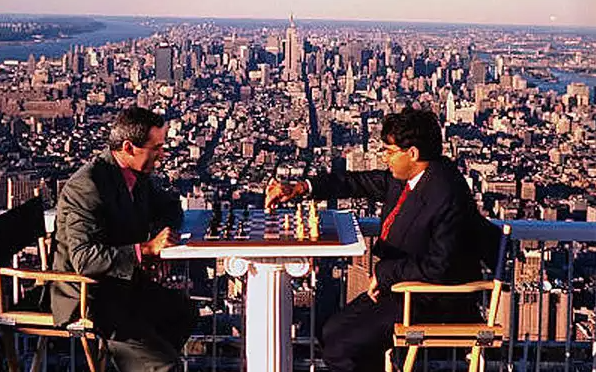When you operate at the top level you aren’t defined by your failures. You are defined by the body of work you create when viewed all together. Even the Chess World Champion loses a game here and there, but he wins matches. A chess match is a cluster of games played and the aggregate score determines the ultimate winner.
There was a 20-game match played in the 1995 chess world championship between then-world champion Garry Kasparov and Indian powerhouse Viswanathan Anand. (Notably, this match was played at the top of the World Trade Center in New York City.)
In that chess match, the two men played to a draw in each of the first eight games. In the ninth game, Anand won. Kasparov was now down one full game, however, he would go on to win four of the next five games and, ultimately retain his world championship with a final score of 10.5 to Vishy’s score of 7.5.
The loss did not matter because, in the context of the 18 games they played, Kasparov was more effective–despite having a moment of loss.
When we have a bad day, look at the whole week. One bad day in a good week isn’t that bad. One bad week, when we’ve had a great month, is easier to swallow. A slow month of work isn’t so bad when we’ve had the best year we can remember.
However, if we don’t “zoom out” and look at a larger pool of data, we tend to obsess over a bad event, bad day, bad season, etc…
Life has seasons, some up, some down. But if we stay the course and live a good and valuable life we can weather the storms and minimize the negative impact. The losses don’t define you, it’s how you recover from the losses and continue working that matters.

